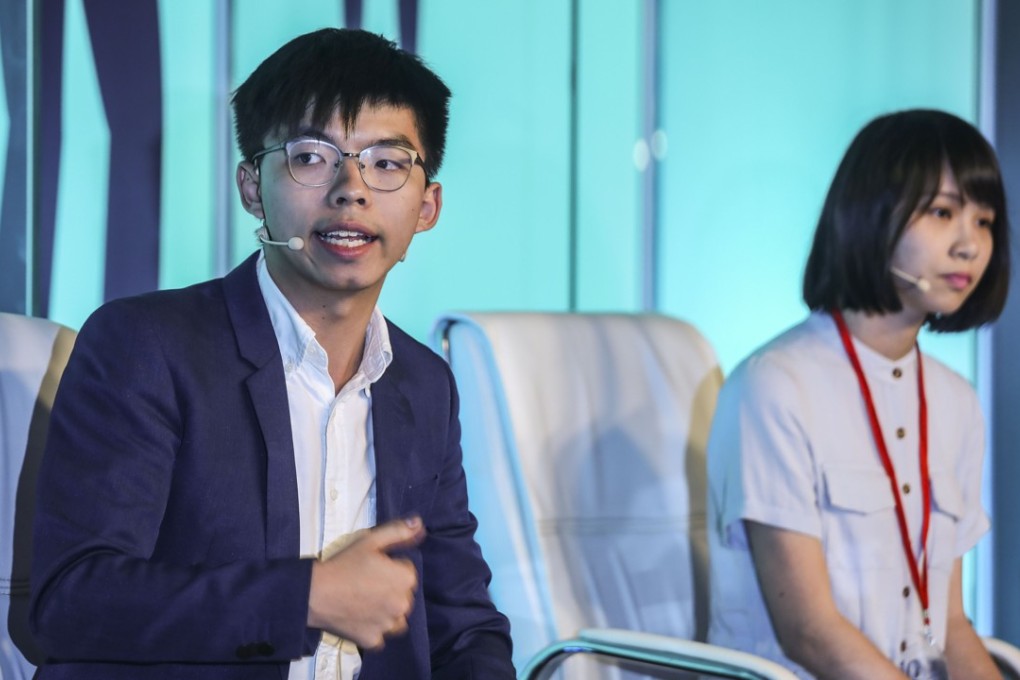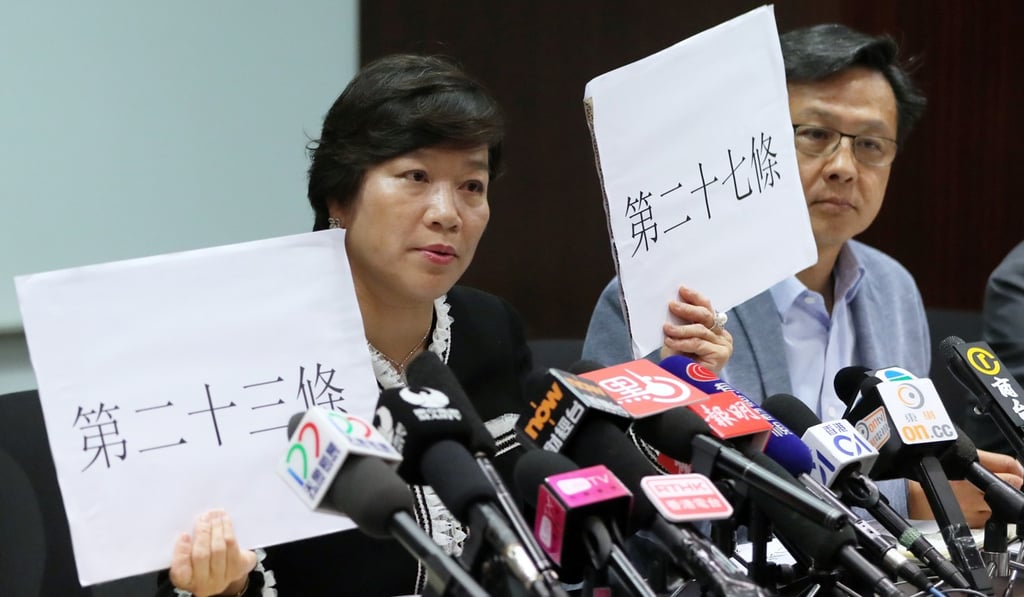Advertisement
Opinion | After the National Party’s ban and new calls for Article 23 legislation, Demosisto should watch its back
Michael Chugani says new Article 23 legislation can be expected to target not only pro-independence groups, but also localists, and this would signal the end of the freedoms that make Hong Kong unique
Reading Time:3 minutes
Why you can trust SCMP

Is advocating independence the same as supporting self-determination? Where does localism fit into the mix? All three are buzzwords in Hong Kong politics but dare we use them so freely any more now that Beijing has made clear its intolerance of such words?
Can teachers allow students to debate the pros, cons and futility of independence? Will election candidates who advocate self-determination in the context of Hong Kong people ruling Hong Kong be disqualified? Is it legal for young people to promote localism to prevent mainlanders changing the city’s culture?
The government has stirred the pot by banning the separatist Hong Kong National Party. That makes it duty-bound to tell us what exactly we can say about independence without landing in jail. Just lecturing us that free speech is not absolute is too wishy-washy.
Advertisement
We all know libel laws limit free speech, but the government has imposed political limits too by banning the National Party. We need total clarity on these limits, especially because Beijing loyalists are agitating afresh for Article 23 national security legislation.
Does the government still subscribe to the general rule that free speech is free speech if it is non-violent? Or are Hongkongers now expected to adopt a politically driven opaque new rule that limits even non-violent free speech?
Advertisement

Advertisement
Select Voice
Choose your listening speed
Get through articles 2x faster
1.25x
250 WPM
Slow
Average
Fast
1.25x
